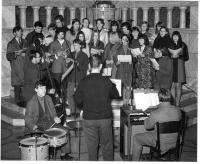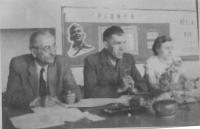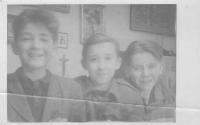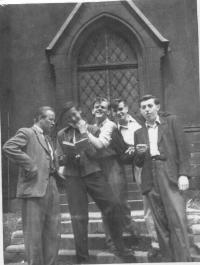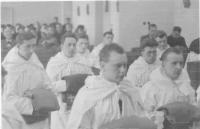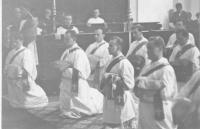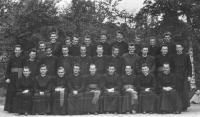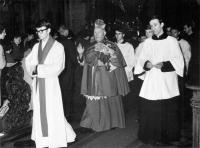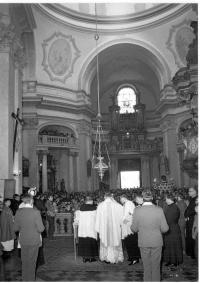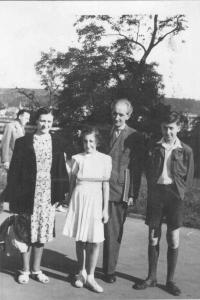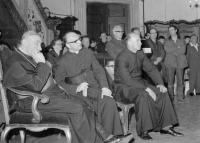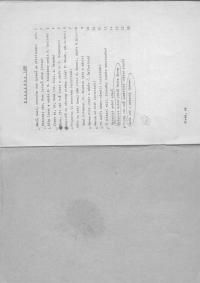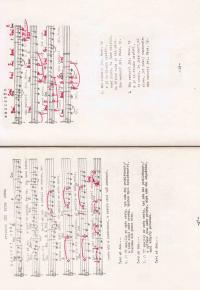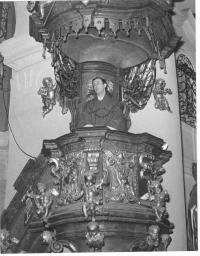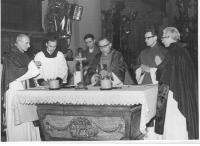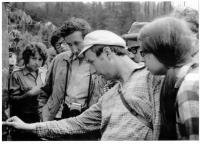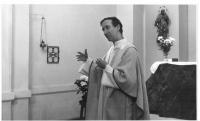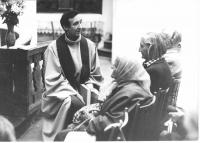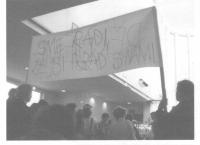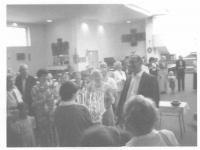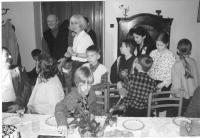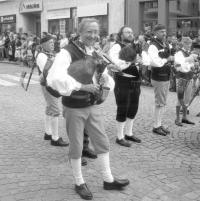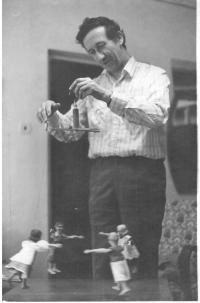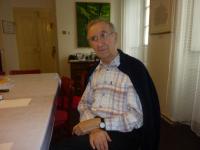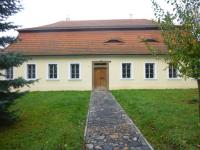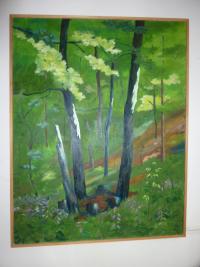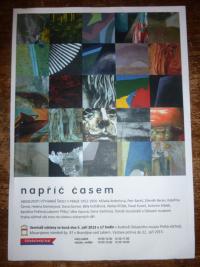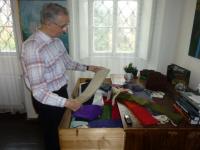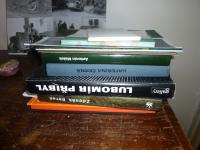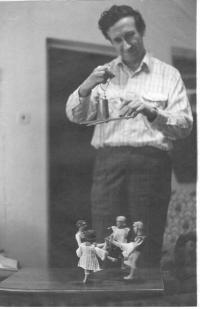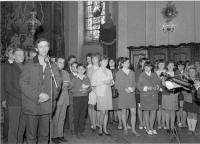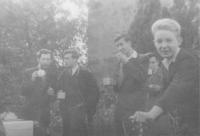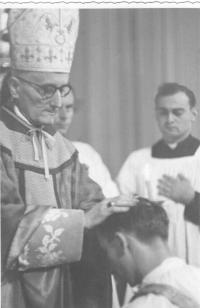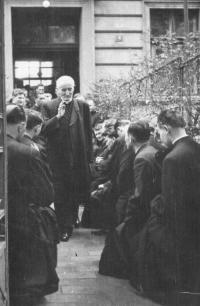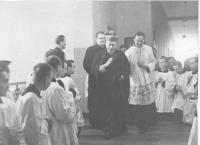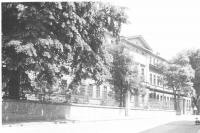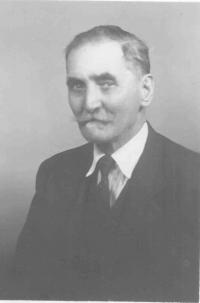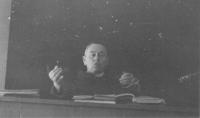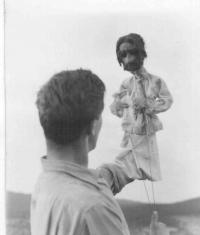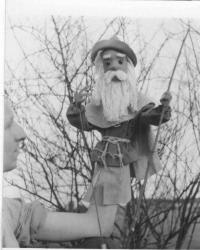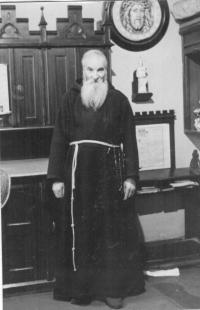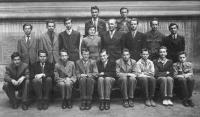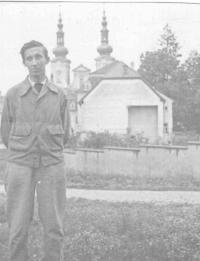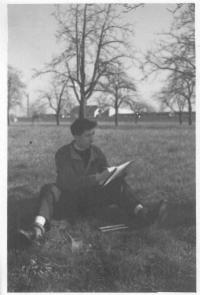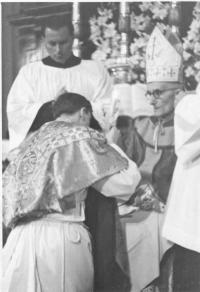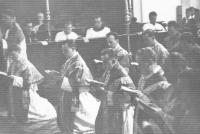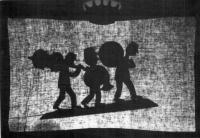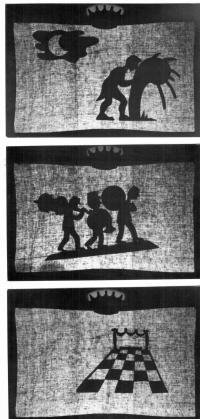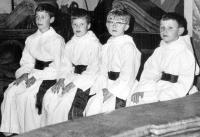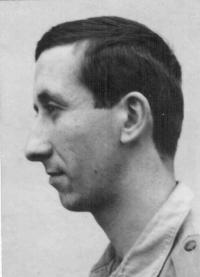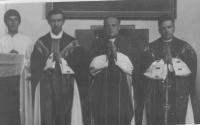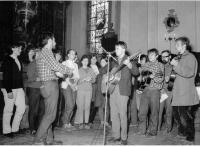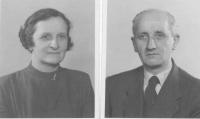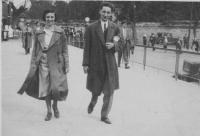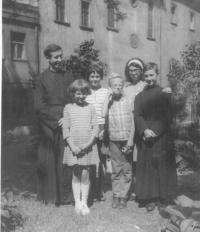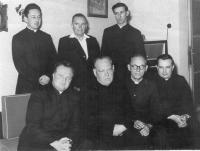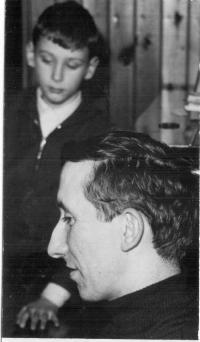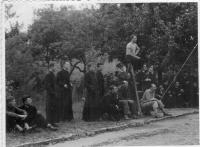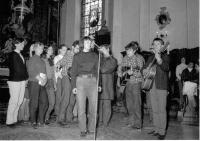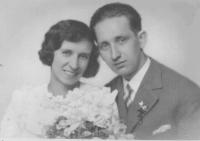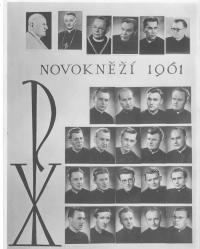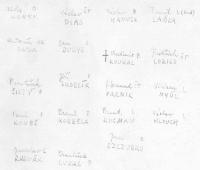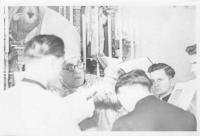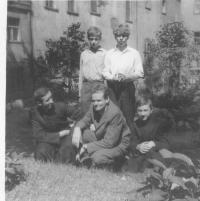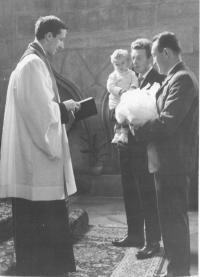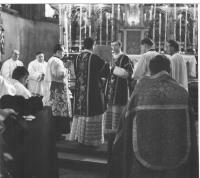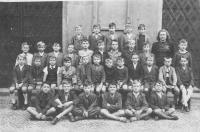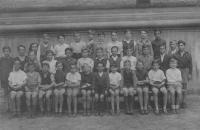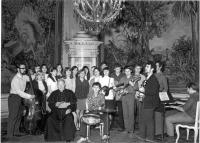Since I figured out that I was no better than others, my life has opened up

Stáhnout obrázek
Pavel Kuneš was born on 6th February 1937 in Prague - Holešovice as the son of a small shop owner. He ties his childhood up with the Nazi occupation of Czechoslovakia and the rise of communist regime when his parents´shop was confiscated. From 1948 to 1952, he studied at the so-called integrated secondary school in Prague - Holešovice, started playing marionette theatre and became familiar with St Antonius catholic parish in Prague, Holešovice. He enjoyed the life of an acolyte and friendship with the other boys. From 1952 to 1956, he studied at the Higher School of Applied Arts (later School of Fine Arts in Prague, Hollar Square). He was also shortly a member of the ´Vyšehrad Choir,´ later a platform of secret catholic education ´circles´ persecuted by communist regime. From 1956 to 1961, he studied at the Cyrilometodějský bohoslovecký seminář (theological seminary) in Litoměřice and after his ordination in 1961, he worked as a chaplain in Plzeň (Pilsen) for only three weeks. In September 1961, he started military service in Lešany near Prague. He played marionette and shadow theatre with his special unit of Slovak Hungarians and Roma (sometimes also juvenile offenders). He returned to Plzeň in 1963, where he identified with the Second Vatican Council reforms and introduced them into his parish life. He took part in the First Archdiocese Liturgic Commission, which was responsible for introducing the Second Vatican Liturgy Reform into Czech conditions. He continued with his reform activities in St Ignatius´Church at Charles Square in Prague from 1966 to 1968 when the Prague Spring started. He dealt with parish youth, supported participation and initiative of the laity and helped to set up the first Czech Catholic modern ´rythmic´ band the Poutníci. Between 1968 and 1971 Pavel Kuneš became a chaplain at the Holy Heart of Jesus in Prague, Vinohrady and, simultaneously, he also worked as an editor of the renascent Katolické noviny newspaper. From 1971 to 1999, he worked as a vicar in Klecany (near Prague). In 1990 he was involved in starting up the Czechoslovak Television Religious Broadcasting, where he worked as a reporter and presenter for several years. In the early 1990s, he also cooperated with the children TV programme Studio Kamarád. From 2000 to 2007, he worked as a vicar (and from 2007 to 2011 as an auxiliary priest) in Prague, Vršovice, and also as a Religious Education teacher at the Archbishop Gymnasium in Prague (2001 - 2011). Since 2012 he has been a vicar in Klecany again. He is still in charge of his parish and is dedicated to marionette theatre, fine arts, writing books and spiritual renaissance of the church.
